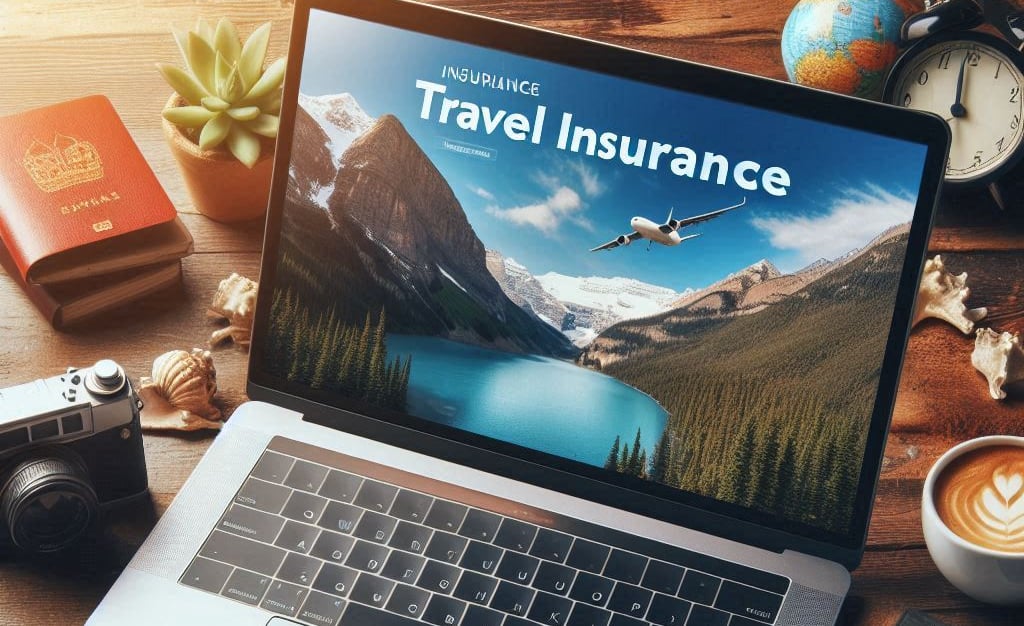The Ultimate Guide to Travel Insurance: Why You Need It & How to Choose
Don't travel without it! Our guide explains travel insurance benefits, from medical emergencies to trip cancellation. Compare plans and find the best coverage for your adventure. Travel smart, travel safe.
Jessy Lignon
11/12/20245 min read


The Ultimate Guide to Travel Insurance: Why You Need It & How to Choose
Imagine this: you’ve been dreaming of your Italian getaway for months. Your flights are booked, your vineyard tours are scheduled, and your suitcase is practically packed. Then, a week before departure, a family member falls seriously ill. You have to cancel. Without protection, you could lose thousands of dollars on non-refundable bookings.
This is where travel insurance transforms from an optional extra into an essential component of smart travel planning. It’s your financial safety net against the unpredictable, allowing you to explore the world with confidence and peace of mind. This comprehensive guide will delve into everything you need to know about travel insurance, from its critical benefits to how you can find the perfect policy for your next adventure.
Why Travel Insurance is a Non-Negotiable for Modern Travelers
Gone are the days when travel insurance was a niche product for extreme adventurers. In our volatile world, it’s a fundamental tool for any traveler seeking to mitigate risk. It’s not about fearing the worst; it’s about being prepared for it, ensuring a minor mishap doesn’t turn into a major financial catastrophe.
1. Financial Protection Against Trip Cancellation or Interruption
This is often the most valuable aspect of a policy. Life is unpredictable. Trip cancellation coverage reimburses you for pre-paid, non-refundable expenses if you have to cancel your trip for a covered reason before you depart. These reasons typically include:
Sudden illness or injury to you, a family member, or a travel companion.
Severe weather or natural disasters impacting your destination.
Being called for jury duty or subpoenaed.
Unexpected job loss.
Similarly, trip interruption coverage kicks in if you must cut your trip short and return home for a covered reason, often covering the cost of a last-minute flight home and any unused portions of your trip.
2. Comprehensive Emergency Medical and Evacuation Coverage
This is arguably the most important reason to have travel insurance. Many travelers operate under the dangerous misconception that their domestic health insurance will cover them abroad. Most U.S. health plans, including Medicare, offer little to no coverage outside the country.
Travel medical insurance is designed to fill this gap:
Hospitalization and Doctor Visits: Covers the exorbitant costs of medical care in a foreign country.
Emergency Medical Evacuation: If you are seriously injured or fall ill in a remote area, this covers the immense cost of transportation to the nearest adequate medical facility or even back to your home country. This alone can cost tens of thousands of dollars out-of-pocket.
Repatriation of Remains: In the worst-case scenario, this covers the cost of returning your remains to your home country.
Prescription Medications and Dental Emergencies: Many policies cover urgent dental care and the replacement of essential prescriptions.
For a seamless process in handling flight delays and cancellations that might lead to claims, services like Compensair can help you secure compensation you're entitled to from airlines, working alongside your travel insurance to ensure you're fully covered.
3. Coverage for Lost, Stolen, or Delayed Luggage
Airlines misplace millions of bags every year. While they may offer some compensation for lost luggage, it is often limited and slow to arrive. Travel insurance provides coverage for:
Baggage Loss: Reimburses you for the value of your belongings if your luggage is lost or stolen.
Baggage Delay: Provides a stipend to purchase essential items like clothing, toiletries, and medication if your bags are delayed for a specified period (often 6-12 hours).
4. Protection Against Travel Delays
If your flight is canceled due to mechanical issues or weather, your travel insurance can reimburse you for additional expenses incurred, such as meals, accommodation, and transportation to and from the airport. This turns a stressful situation into a manageable one.
5. Personal Liability and Other Niche Protections
If you accidentally injure someone or damage property while traveling, personal liability coverage can protect you from devastating legal costs and settlement fees. Some policies also offer additional optional coverages like:
Rental Car Damage: Often more affordable than purchasing coverage through the rental company.
Adventure Sports Coverage: Essential for activities like skiing, scuba diving, or zip-lining that are often excluded from standard policies.
Cancel For Any Reason (CFAR): An optional upgrade that allows you to cancel your trip for reasons not listed in your standard policy (e.g., fear of a pandemic, sudden work obligation) for a partial reimbursement (usually 50-75%).
Navigating the Different Types of Travel Insurance Policies
Not all policies are created equal. Understanding the different types will help you select the one that aligns perfectly with your travel style.
Single-Trip Travel Insurance: The most common type. It provides coverage for one specific trip, from your departure date until you return home. Perfect for the annual vacationer.
Annual Multi-Trip Insurance: If you are a frequent traveler, this is incredibly cost-effective. It covers all trips taken within a year, each up to a specified maximum length (e.g., 30 or 45 days per trip).
Backpacker/Long-Stay Insurance: Designed for travelers on extended journeys, gap years, or long-term digital nomads. Coverage can often last for 6, 12, or even 18 months.
Specialized Insurance: This includes policies tailored for specific needs like adventure travel insurance for high-risk activities, cruise insurance, or medical-only policies for those who only need health coverage.
How to Choose the Right Plan: A Step-by-Step Guide
With countless providers available, selecting the right plan requires a strategic approach.
Assess Your Trip's Risk Profile: Consider your destination, trip cost, duration, and planned activities. A two-week tour of Europe requires different coverage than a month of skiing in the Alps or a remote hiking trek in Nepal.
Compare Policies Meticulously: Don’t just go with the first provider you find. Use comparison tools to evaluate coverage limits, deductibles, and exclusions. Websites like VisitorCoverage.com are excellent resources for comparing plans from top providers side-by-side to find the best value.
Read the Fine Print (Especially the Exclusions): This is the most critical step. Understand what is not covered. Common exclusions include pre-existing medical conditions (unless waived), injuries from alcohol or drug use, and high-risk activities. If you have a pre-existing condition, companies like Ekta Traveling often provide specialized advice and plans that can accommodate your needs.
Verify 24/7 Assistance Services: Ensure your provider offers round-the-clock global assistance. You need to be able to call for help anytime, anywhere, whether it’s for a medical emergency or a lost passport.
Consider Your Budget Wisely: The cost of travel insurance is typically 4-10% of your total trip cost. While it's an added expense, view it as a necessary investment. The small premium is insignificant compared to the potential financial loss of an unforeseen event. For help in potentially offsetting some trip costs, you can use services like AirHelp to claim compensation for flight delays, cancellations, or overbookings, which can work in tandem with your insurance.
Debunking Common Travel Insurance Myths
Myth 1: "I'm Young and Healthy, I Don't Need It." Accidents and illnesses are not age-discriminant. A broken bone from a slip or a severe case of food poisoning can happen to anyone and result in massive medical bills abroad.
Myth 2: "My Credit Card Provides Enough Coverage." While many premium credit cards offer some travel protection, the coverage is often limited. It may only cover trip cancellation but not emergency medical expenses, or have very low limits for baggage loss. Always verify your card's benefits and supplement it if necessary.
Myth 3: "It's Too Expensive." When weighed against the potential cost of an international medical evacuation ($100,000+) or a canceled $5,000 tour, a $200 policy is a bargain. It’s one of the most cost-effective risk management tools available.
Final Thoughts: Your Ticket to Peace of Mind
Travel insurance is the silent guardian of your vacation. It’s the assurance that allows you to fully immerse yourself in the joy of discovery, from the bustling markets of Bangkok to the serene landscapes of Patagonia, without the underlying anxiety of "what if."
Investing time to research and purchase a comprehensive policy is the final, crucial step in planning any journey. It empowers you to be a smarter, safer, and more resilient traveler. So before you embark on your next great adventure, secure your coverage. Your future self will thank you for the priceless gift of peace of mind.
Ready to find the perfect plan for your next trip? Compare tailored quotes and comprehensive coverage options today to ensure your adventures are always protected.
Inspiring travel stories and practical tips await you.
Wanderlust
Adventure
contact@traveledforyou.com
© 2024. All rights reserved.
